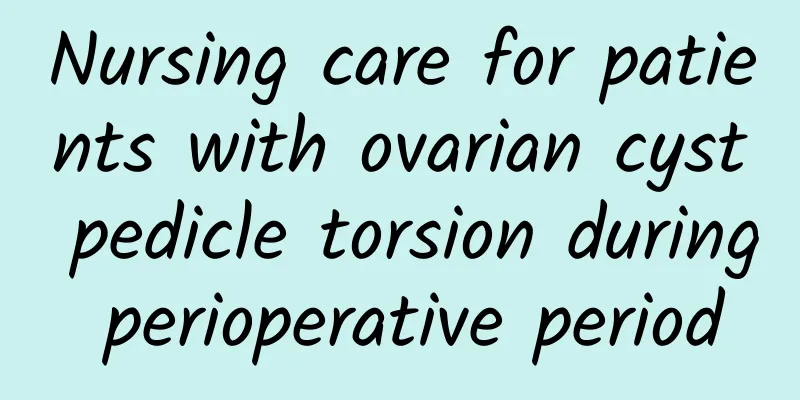How to squeeze out a ruptured Bartholin's gland cyst

|
If a Bartholin's gland cyst ruptures, it is not recommended to squeeze it out by yourself. It is best to go to the hospital for professional treatment in time. 1. Seek medical attention promptly: After a Bartholin's gland cyst ruptures, it is most important to go to the hospital as soon as possible. The doctor will perform local disinfection to ensure that the wound does not become infected. If the cyst is large or recurs repeatedly, the doctor may recommend surgery. This will not only completely remove the cyst, but also reduce the risk of recurrence. 2. Risks of self-treatment: Squeezing the cyst by yourself may cause the capsule to remain, increasing the chance of recurrence. If the capsule is not cleaned up, the cyst is likely to form again, or even cause a more serious infection. A professional doctor can ensure that the capsule is completely cleaned up to avoid subsequent problems. 3. Postoperative care: After surgery or disinfection, care is critical. Regular dressing changes are necessary, and you can use a 1:5000 potassium permanganate solution for a sitz bath under the guidance of a doctor. This helps the incision heal and reduces the risk of infection. Inadequate postoperative care may lead to wound infection or poor healing. 4. Personal hygiene: Keeping the perineum clean is an important measure to prevent the recurrence of cysts. Wash the perineum with warm water every day and avoid using irritating lotions. At the same time, avoid sexual intercourse until you are fully recovered. Sexual intercourse may aggravate the wound and prolong the healing time. 5. Clothing selection: Choose loose, breathable, cotton underwear to reduce friction and irritation. Tight clothing may aggravate local discomfort and even cause infection. Cotton underwear helps keep the area dry and reduce bacterial growth. 6. Use of sanitary products: Change sanitary pads and underwear frequently and keep them clean. Using the same sanitary pad for a long time will increase the risk of infection. Especially in summer, when you sweat more, you need to change it more frequently. 7. Diet and rest: Adjust your diet appropriately and eat more fresh fruits and vegetables to enhance immunity. Adequate rest and sleep also help the body recover. Avoid spicy and greasy foods, which may aggravate inflammation. 8. Regular check-ups: Even if symptoms have eased, you should still have regular check-ups. Doctors can detect potential problems in time and prevent recurrence. Regular check-ups can not only ensure full recovery, but also provide professional health advice. After a Bartholin's gland cyst ruptures, timely medical attention and proper care are key. Self-treatment is risky, and professional doctor's guidance and treatment can ensure better recovery. Maintaining good personal hygiene and healthy living habits can effectively prevent the recurrence of cysts. |
<<: How to tell if you have had a miscarriage
>>: How long after abortion can I have sex?
Recommend
Can uterine evacuation treat cervical erosion?
Cervical erosion generally refers to cervical col...
What to do if your period is delayed
What should I do if my menstruation is delayed? D...
What harm does cervical erosion cause to women? How can women prevent cervical erosion from becoming cancerous?
With the ever-increasing pace of life and changes...
Does progesterone capsules induce menstruation? Treating irregular menstruation
Progesterone capsules are an oral progestogen dru...
Will women with cervical erosion bleed during pregnancy? Some suggestions for women with cervical erosion
There are many mucous membranes on the surface of...
How to regulate irregular menstruation through diet?
How to regulate irregular menstruation through di...
What are the hazards of cervical erosion? The most serious one may be cervical cancer
No matter what disease you suffer from, what we a...
What to eat for multiple ovarian cysts
What should I eat for multiple ovarian cysts? Stu...
Ren Rongxuan lost 8 kg and reduced body fat by 8% in 4 months! Medical revelation: Breaking through the bottleneck of weight loss and the secret of beautiful transformation
Artist Ren Rongxuan has lost weight successfully ...
Can you lose weight by drinking water? Artist Gillian Chung reveals her drinking schedule, not only does she lose weight but she also becomes more beautiful
The latest stills of the new movie "Fengshen...
What should I eat to replenish my blood if I have uterine fibroids? What should I eat to replenish my blood if I have uterine fibroids and anemia?
Uterine fibroids are one of the common gynecologi...
What are the causes of ovarian cysts?
What causes ovarian cysts? Causes: 1. Genetics Ac...
Patients should pay attention to the daily health care of uterine fibroids
Nowadays, women are prone to diseases due to soci...
What are the treatments for female cervical erosion? Female cervical erosion can try traditional Chinese medicine
Patients with cervical erosion are mainly women w...
What are the symptoms of chronic cervicitis
Chronic cervicitis is a common disease in daily l...









